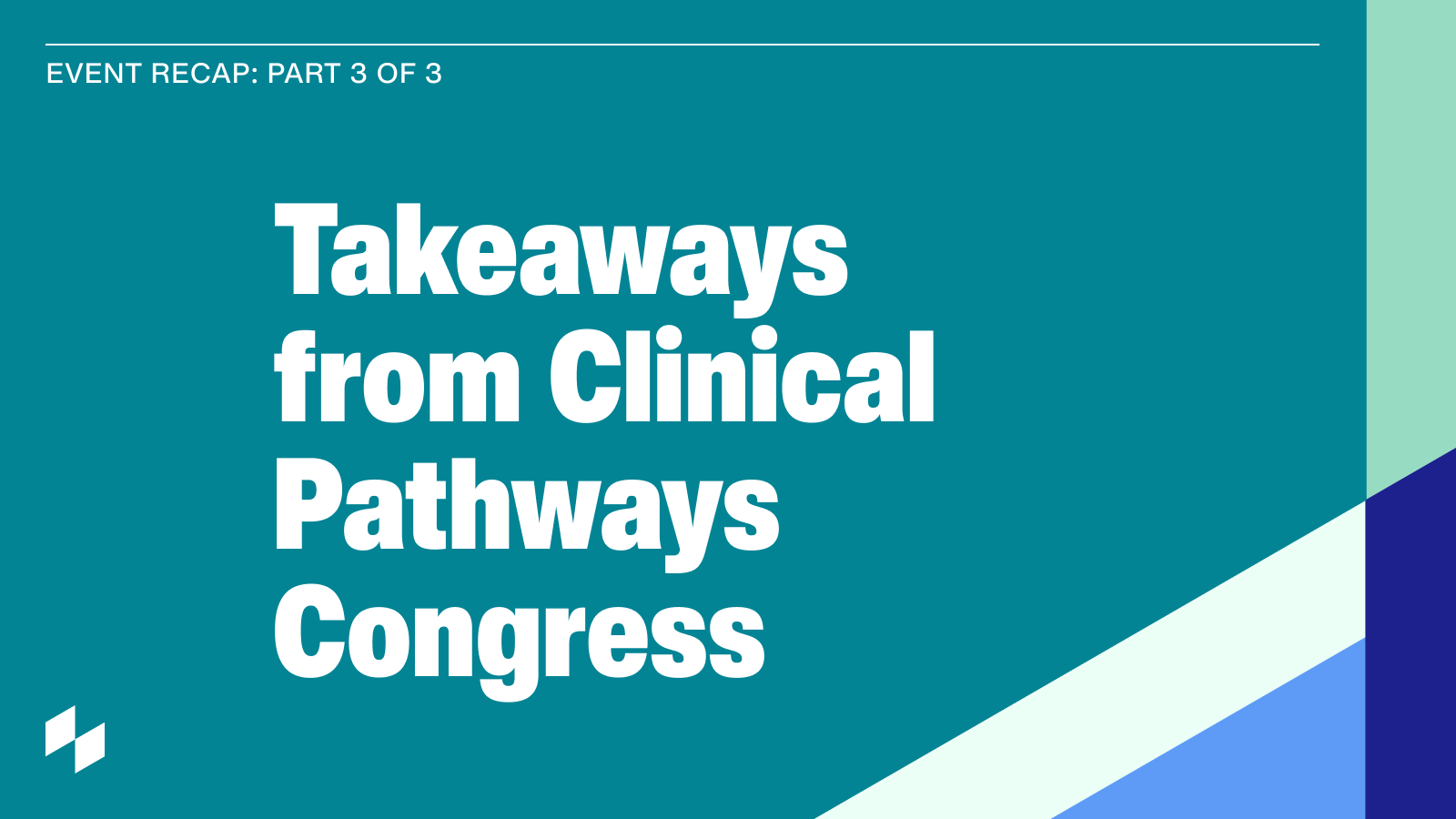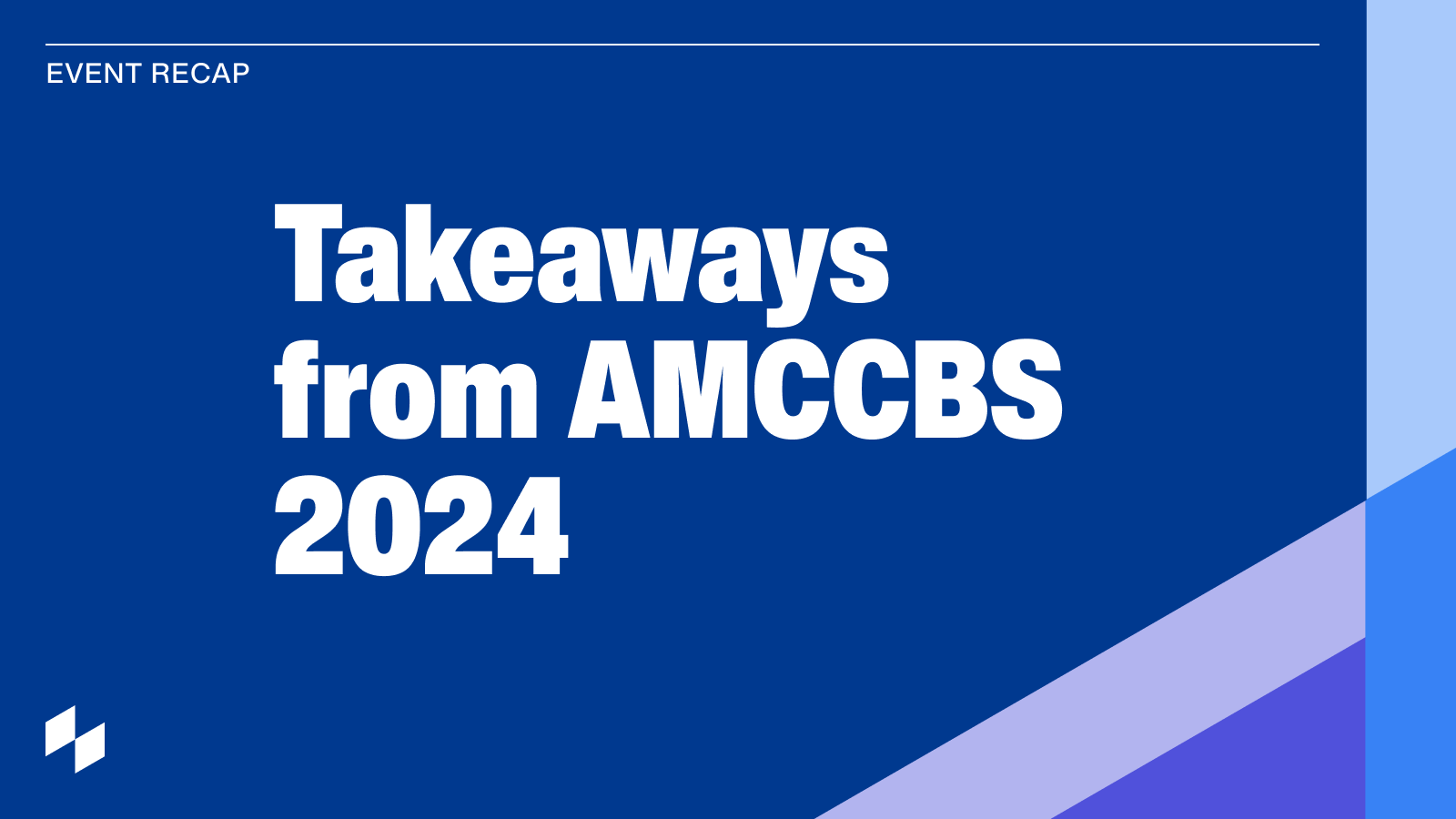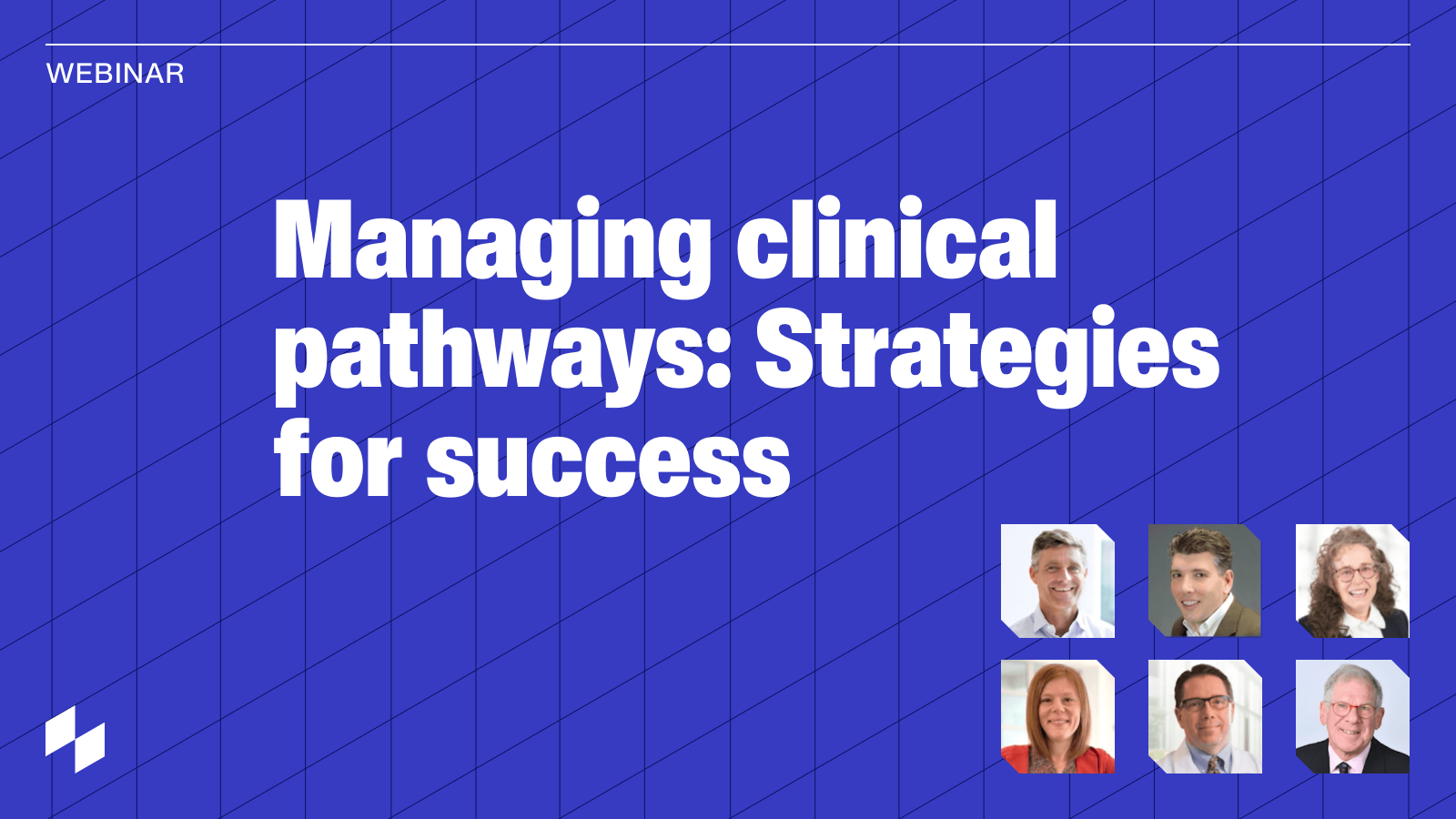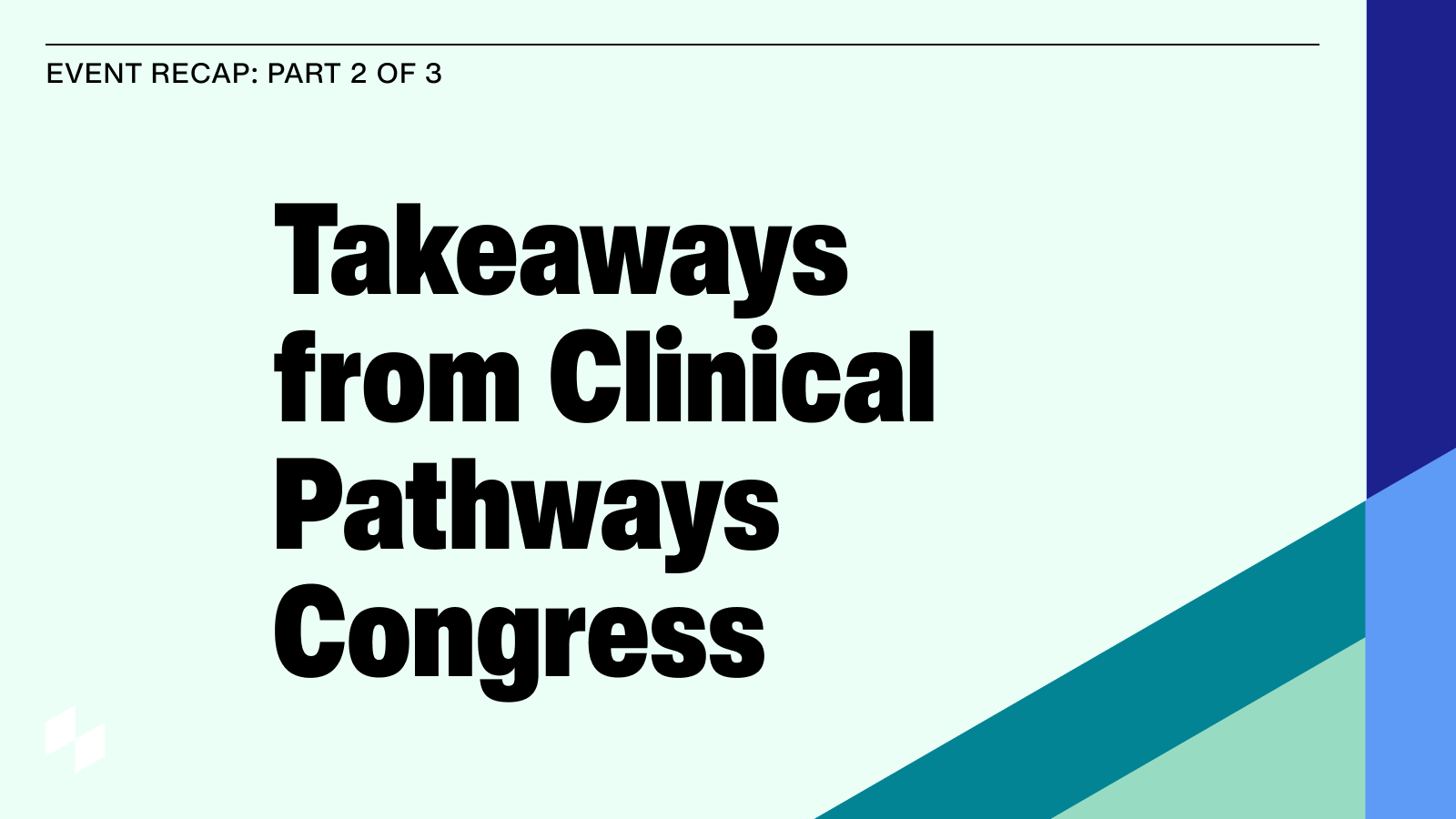Cancer care is advancing at an unprecedented pace as our understanding of the biological drivers of disease expands dramatically. With deeper, richer biomarker data – and a growing toolkit of precision therapies matched to these unique factors – we can now deliver truly personalized therapies to people living with cancer.
However, we have to be careful not to worsen existing disparities in access and outcomes. Currently, a significant portion of our knowledge about cancer stems from clinical trials that fail to accurately represent the genetic and socioeconomic diversity found in real-world populations. As a result, clinicians may question whether the latest information coming out of the research environment is truly applicable to their particular patient populations. This underscores the crucial need for seamless access to decision support tools across testing and regimen selection.
At the 2023 Clinical Pathways Congress in Boston, I had the privilege of joining a panel of esteemed oncology experts to address a critical question: how can we expand precision medicine while ensuring representation and inclusivity for diverse communities in need of targeted therapies? My co-panelists included Debyani Chakravarty, PhD - Assistant Attending Molecular Geneticist at Memorial Sloan Kettering Cancer Center, and John W. Sweetenham, MD, FACP, FRCP, FASCO - Chair of the NCCN Board of Directors. The panel was moderated by my colleague Ivy Altomare, MD - Senior Medical Director at Flatiron Health. Below, I’ve highlighted some of the impactful takeaways and themes we delved into during the session.
Assist patients with navigating the precision medicine ecosystem
One challenge is that there can be wide variation in the awareness of the full range of standard and experimental precision medicine therapies among both doctors and patients. A recent study revealed that only 60% of individuals had knowledge about clinical trials in general, with notably lower levels among Hispanic and non-Hispanic Black participants. Additionally, there are opportunities to address gaps in care quality related to appropriate use of NGS testing.
Cancer centers need assistance and easy access to resources in order to help educate patients about what precision medicine can do and how to appropriately engage with the latest targeted treatments. This highlights the significance of having access to clinical decision support for testing and regimen selection. Thoughtfully-designed clinical decision support (CDS) tools integrated into the clinician's workflow can help drive high quality care by making sure providers have the best evidence for their patients right when they need it.
Surfacing digestible insights to treating oncologists
Keeping up with the latest updates in precision medicine can be overwhelming for many clinicians. Rather than lengthy reports on genetic testing results, which often require hours of time and specialized knowledge to read, clinicians seek access to simple, intuitive information such as understanding the gene's role in cancer, its impact, and available treatment options. In an ideal scenario, this information is readily available and surfaced at the point-of-care, aiding physicians in making the most appropriate treatment decisions.
This is the key driver behind Flatiron Assist™, an oncology-specific CDS tool that surfaces NCCN® guidelines and customized pathway content at the point of care. An impactful example of the power of CDS tools is Hematology-Oncology Associates of Central New York, a cancer center that leveraged Flatiron Assist™ to reduce care variation across their sites and experienced a 44% reduction in unique regimes ordered.
Making the data easier to interpret could encourage more providers to recommend appropriate biomarker testing to a broader spectrum of patients, opening up new opportunities to access cutting-edge therapies, some of which require testing for eligibility requirements.
Assisting providers to stay aligned with best practices in precision care
Health equity is about ensuring that every person has the same opportunity to access exceptional care, and that means keeping providers informed about all of the industry standards, pathways, and guidelines that represent the latest clinical thinking. Using technology, such as Flatiron Assist™, to embed this data into the workflow allows providers to make informed decisions on an equitable basis without requiring burdensome manual research each time.
Generating this information also empowers cancer centers to gain insight into how, when, and why providers may be deviating from recommendations so they can provide additional education for clinicians or develop new strategies to engage patients in recommended care. The right technology platforms can be customized to reflect organizational or payer preferences to support clinicians further as they practice in their communities.
Expanding education and increasing access to information must be the industry’s top priorities if we are to pursue precision medicine in an equitable manner. By applying data-driven strategies to broaden genetic testing and bringing more diverse populations into the research environment, we can ensure that our knowledge base is more representative. We can also ensure that providers are informed and confident about their choices, and precision medicine techniques are optimized to meet the needs of every unique community.




